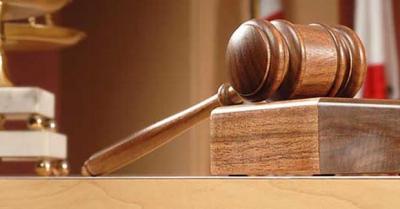J.M. Changou, condamné à six mois de prison pour conduite en état d’ivresse, ne pourra faire appel du jugement de la Cour intermédiaire au Privy Council, la division criminelle de la cour d’appel ayant rejeté sa demande. « Permission to appeal be refused because the application does not raise an arguable point of law, or a point of general public importance which ought to be considered by the Judicial Committee at this time and there is no risk that a serious miscarriage of justice has occurred », soutient la cour d’appel.
Trouvé coupable de « driving a motor vehicle with alcohol concentration above the prescribed limit » en violation de l’article 123 F (1) (a) de la Road Traffic Act, J. M Changou avait été condamné à six mois de prison et une amende de Rs 20 000. Il avait fait appel, arguant qu’une peine d’emprisonnement était excessive et que la magistrate aurait dû lui accorder des travaux communautaires. Les juges Asraf Caunhye et Abdool Rafik Hamuth, siégeant en appel, ont confirmé que J. M Changou avait effectivement conduit en état d’ivresse et que dans ce cas la magistrate ne pouvait lui imposer des travaux communautaires, la loi stipulant qu’« in the case of a second or subsequent conviction, the offender under subsection (1) shall be liable to a fine of not less than Rs 20 000, nor more than Rs 50 000 together with imprisonment for a term of not less than six months nor more than 12 months ».
Les juges ont ainsi confirmé que la peine d’emprisonnement de six mois n’était pas excessive, rejetant son appel. « The sentence of six months’imprisonment cannot be considered to be harsh and excessive as the learned Magistrate chose to impose upon the appellant the minimum mandatory penalty which is prescribed by law in the case of a second conviction ». Il avait alors logé une demande pour faire appel devant le Privy Council, ce qui a également été rejeté. Sa motion était essentiellement basée sur des interprétations d’ordre constitutionnel. Mais la cour d’appel a estimé qu’aucun point ne nécessitait l’intervention du Privy Council. De même, les points avancés par l’accusé n’avaient pas une « grande importance » pour l’intérêt public.
CONDAMNÉ POUR CONDUITE EN ÉTAT D’IVRESSE: Il ne pourra faire appel au Privy Council
- Publicité -
EN CONTINU ↻


